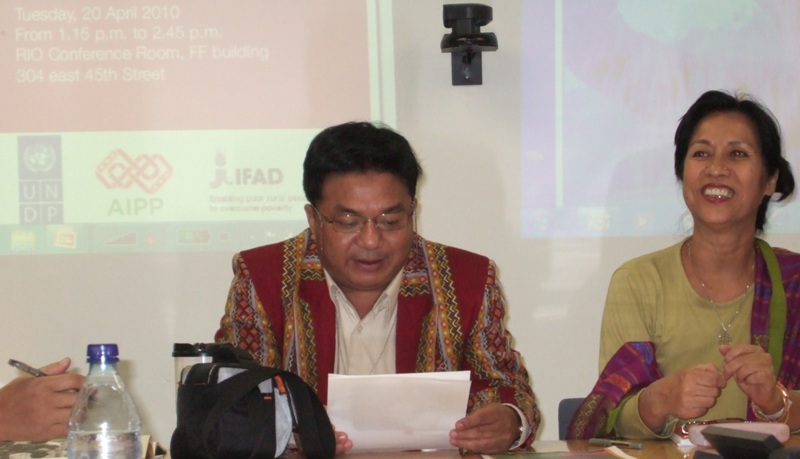Major Boost for Global Indigenous Rights Movement

22 April 2010: In an intriguing turn of event that could lead to greater recognition of the rights of nearly 400 million indigenous peoples around the world, New Zealand this week reversed its former position and gave a key endorsement to the United Nations Declaration on the Rights of Indigenous Peoples.
The announcement was made Monday in New York to a standing ovation from over 2000 delegates attending the United Nations Permanent Forum on Indigenous Issues. “Today New Zealand changes it position: We are pleased to support the Declaration,” said the Minister of Maori Affairs Dr. Pita Sharples.
With the latest endorsement from New Zealand, only Canada and the United States remain on the opposing side of the UN document that accords special rights to the indigenous peoples, which was formally adopted by the United Nations General Assembly in 2007. Among the rights contained are political, social, economic and cultural rights as well as access to resource and lands.
Australia last year backed down on its former position and gave its approval to the Declaration.
“Of course this is significant,” says indigenous rights expert Dr. Sui Khar, “not just for the indigenous peoples within New Zealand, but for others around the world in terms of the Declaration having greater weight of authority than before as part of a customary international law.” Sui Khar is Chair of the Asia Indigenous Peoples’ Pact (AIPP), a regional coalition of indigenous organizations from across Asia.
Meanwhile, US Ambassador Susan Rice has announced that the Obama administration will set up a special commission to review US position on the Declaration. The main dilemma for the US in endorsing the Declaration had been the fact that the under the American Constitution, any international treaty entered into by the US government becomes part of a national law.
UN Side Event Discusses Development Challenges in Asia
An important event on the sidelines of the UN Permanent Forum on Indigenous Issues was a joint initiative sponsored by the International Fund for Agricultural Development (IFAD), the UN Development Program’s Regional Initiative on Indigenous Rights and Development (RIIRD), and the Asia Indigenous Peoples’ Pact (AIPP).
“Indigenous peoples across the world particularly in Asia are grappling with impacts of modern development resulting in their further discrimination, exploitation, oppression and marginalization,” Sui Khar said in his opening remark. He said that the challenges of sustainable development should be tackled in a way consistent with the simple life-styles and the indigenous peoples’ symbolic relationship to their natural environment.
© Chinland Guardian





